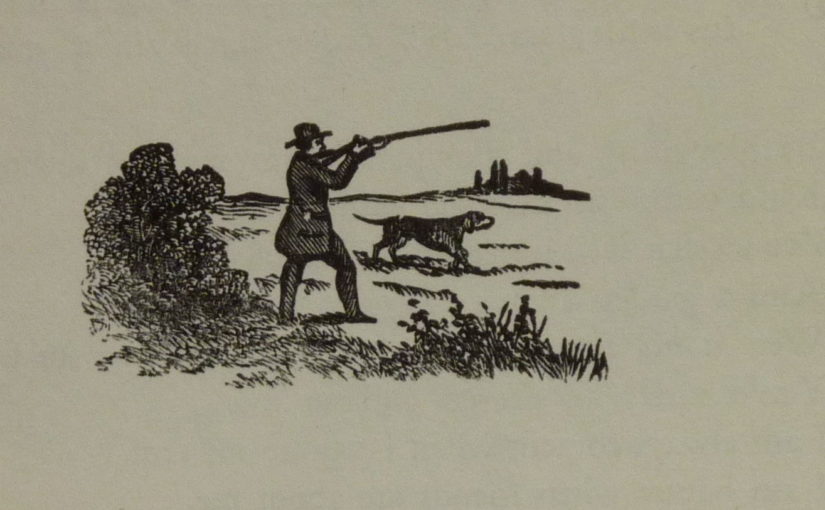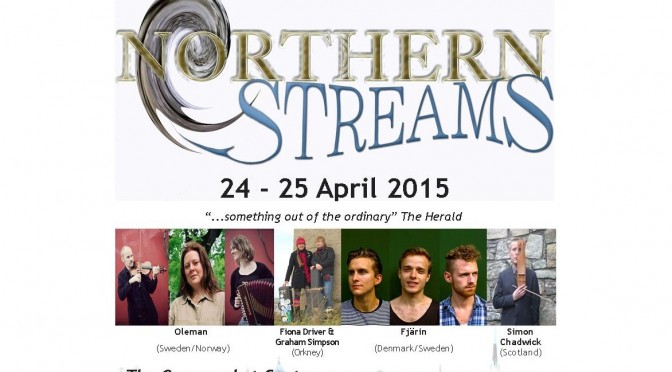When I started playing the harp, I worked through Ann Heymann’s book Secrets of the Gaelic Harp (Clairseach, 1988). The first tune that I learned from this book was Mailí Bhán, “fair Molly”.
Continue reading Mailí BhánTag: song
Seabhac na hÉirne, or the Hawk of Ballyshannon
I was very pleased to discover what seems to be a traditional sung version of a Carolan song.
Continue reading Seabhac na hÉirne, or the Hawk of BallyshannonEdward Dodwell
Edward Dodwell is another of the tunes in the “difficult” section of Edward Bunting’s field notebook between pages 14-40. You can see in my tune list spreadsheet that Ned Dodwell, on p.40, is at the very end of that section. In fact, since the next facing page from p.40 is p.43, I think we are missing a page here, and I think the missing page had a neat copy of Ned Dodwell.
Continue reading Edward DodwellHere lies Lappin, harper’s king
Ann Heymann was probably the first person to spot the lyrics “Here lies Lappin” associated with Burns’s March, including them in her book Secrets of the Gaelic Harp (1988). Continue reading Here lies Lappin, harper’s king
Margaret 1281 concert at Northern Streams
On Friday 24th April is the first big public outing of the replica Queen Mary harp after it has been seriously reworked inside by Natalie Surina of Ériú Harps. I am going to present my “Margaret 1281” programme of storytelling, song, harp music and bowed-lyre tunes, as part of the annual Northern Streams festival in Edinburgh.
Rory Dall Morrison tunes
On Saturday in the Wighton Centre, we were talking about Rory Dall Morrison, the blind harper of Dunvegan in the 1690s. So today I went back to my PDF Rory Dall tune list, and added in all the tunes for his songs. I was also bolder in moving more of the tunes and one of the song airs into the ‘misattribution’ section.
Fíor mo mholadh ar Mhac Dhomhnaill – medieval bardic poetry performance
This is the final set at the Ceòl Rígh Innse Gall concert in the museum at Armadale, Isle of Skye, last month: medieval Gaelic ‘bardic’ poetry, sung with accompaniment played on the replica of the medieval Scottish ‘Queen Mary’ harp.
Fíor mo mholadh ar Mhac Dhomnaill
Cur la gceanglaim cur gach comhlainn
True my praising of MacDonald, hero I am tied to, hero of every fight
Croidhe leómhain láimh nár tugadh
Guaire Gaoidheal aoinfhear Uladh
Lion’s heart, hand that did not reproach, Guaire of the Gael, sole champion of Ulster
Aoinfhear Uladh táth na bpobal
Rosg le rugadh cosg na cgogadh
Champion of Ulster, welder of people, eye which caused the ceasing of warfare
Grian na nGaoidheal gnúis í Cholla
Fa bhruach Banna luath a longa
Sun of the Gael, face of the sons of Coll, around the Bann his galleys were swift
Cuiléan confaidh choisgeas foghla
Croide connla bile Banbha
Furious hound, stopping raiders, steadfast heart, tree of Ireland
Tír ‘na teannail deirg ‘na dheaghaidh
A bheart bunaidh teacht go Teamhair
The land is a blazing beacon behind, his ancestral duty to go to Tara
Measgadh Midhe onchú Íle
Fréimh na féile tréan gach tíre
The confuser of Meath, the wolf of Islay, the root of bounty, the defender of each land
Níor éar aoinfhear no dáimh doiligh
Craobh fhial oinigh ó fhiadh n-Oiligh
Refusing no-one, no pleading poets, generous honourable branch from the land of Oileach
Níor fhás uime acht ríoghna is ríogha
Fuighle fíora fíor mo mholadh
No-one raised with him but kings and queens. True these judgements; true my praising
Poet: anonymous MacMhuirich c.1500
Singer: Gillebrìde MacMillan
harpist: Simon Chadwick
After the music finishes we hear Godfrey, Lord MacDonald, speaking with the ‘vote of thanks’.
Concert at Armadale
Here’s the first photo I have seen so far from the Ceòl Rígh Innse Gall concert at the Museum of the Isles, Armadale, on the Isle of Skye a couple of weeks ago.
The Lark in the Morning
Last week and this week and next week the theme for my Saturday afternoon harp class in Dundee is Christmas music. Early this morning I suddenly decided that the wren song tradition would be a fun thing to do today – I have worked on Bunting’s 1809 setting of the Wren song before with a student, so I knew it was a great tune to give the class. But I also wanted to work on the traditions behind the wren hunt and so I had a quick look round to remind myself.
Fintan Vallely’s Companion to Irish Traditional Music has a nice little article on the wren, with a lovely photo of wren boys in Dingle – I would guess the photo was pre-WW2, one of the boys has a fife and two have bodhrans (which gave me a chance to talk about that!). The article also included one verse of the wren song, which fits Bunting’s tune pretty well.
I checked in Donal O’Sullivan’s notes on the Bunting tunes, and he does go into a lot of detail on the wren hunt but I did not spend too much time following up his references this morning.
Looking online I got a couple of excellent references. I got the pointer of the cutty wren song in Herd’s Scots Songs of 1776 – google books provided me with facsimile pages and all of a sudden I remembered that I knew this song from 20 years back, so I walked round the house trying to remember how it went. Every so often a whole new section of the question and answer would pop back into my head. In the class I managed to sing it and some of them even joined in with the answer sections – great fun, and not often that I sing an old song dragged up out of the back of my mind like that.
But the most fun was seeing a reference to Liam Clancy’s 1953 recording of the wren song on the LP, The Lark in the Morning. I have a copy of this LP which I had for some reason never got round to playing much so I had the fun of finding the record, setting up the equipment and listening to his lively version of the wren. This is another song I know from way back (I have it on an old cassette tape of traditional British and Irish midwinter songs), and I was amused to hear him mentioning the town where he lived and also his mother by name in the song.
Of course this evening as the gear was out and the record propped up against the bookcase I sat down on the floor and listened to both sides. What a beautiful and moving set of performances. At times I laughed out loud, and at other times there was a tear in my eye.
Grant of Sheuglie’s Contest betwixt his Violin, Pipe and Harp
I was contacted recently by a descendent of Alexander Grant of Shewglie, the early 18th century poet, piper, harper and fiddler. Alex Grant was a very interesting character, heavily involved in the Jacobite risings. He is said to have been a good poet or songwriter, but as far as I can see none of his poems survive. We know some details about two of them, but we dont have the text of either.
Grant composed a song in welcome to Charles Edward Stewart; it begins
Do bheatha Thearlaich Stiubhart,
Do bheatha do ar duthaich
which means basically, “welcome, Charles Stuart, welcome to our place”. Keith Sanger (West Highland Notes & Queries 20, March 1983) suggests it may be in a manuscript belonging the National Library of Scotland (no. 6 of the MacNicol collection, MS Acc2152), but this manuscript appears to be missing from the library.
Grant also composed a song, a “contest betwixt his Violin, Pipe and Harp”. The tune of this, and also an English paraphrase of the words, was published in Simon Fraser’s book in 1816. We are told that the fiddle is addressed as “Mairi nighean Dheorsa” (Mary the daughter of George), and this seems to have been also a title of the tune.
I think the tune is an older traditional song air; Allan MacDonald in his Thesis connects it to the pipe “March for a Beginner” in Joseph MacDonald’s Complete Theory. Perhaps more intriguingly, the tune is said to have been used for other songs in the 18th century, a poem by Ardnabi in praise of a fiddle, Mairi nighean Dheorsa, and another famous poem in praise of MacCrimmon’s bagpipes. What is the connection between this tune and the name Mairi nighean Dheorsa given to a fiddle? The later Ardnabi poem not only uses the name for the fiddle but also says that the air to be used when singing the poem is “Mairi nighean Dheorsa”. Did both Ardnabi and Grant pick up an older tune called Mairi nighean Dheorsa and use it to praise their fiddles, or did Grant pick up an older generic song air and attach it to the Mairi nighean Dheorsa name and theme?
Here’s my version of it. I decided to pick up on the themes of Fraser’s paraphrase of Grant’s song, so the first and fourth of my verses are fairly straight from Fraser’s fiddle score; for verses two and three I have improvised a pipe-style and a harp-style interpretation of the melody.
It’s also interesting to think that Alexander Grant, of Shewglie in Glen Urquhart, was a contemporary of Raghnall Mac Ailein Óig, of Morar; both are said to have played pipes, fiddle and clarsach.







